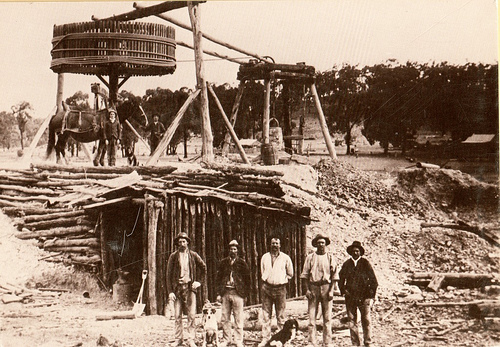While increased technology and solidarity might make us believe that more crooked people exist now than ever before, history points out that dishonest individuals have been around for centuries. In medieval Europe, for instance, salespeople took chicken bones and sold them as holy relics. The creation of the Internet has merely brought about a new platform for scams. Web-based sales scams can be among the most dangerous for victims, costing them hundreds, if not thousands of dollars. What’s the best piece of advice around? If something sounds too good to be true, it probably is. Another way to protect yourself is to be aware of some common sales scams. Below you’ll find 10 of the most infamous sales hoaxes in history.
10. Holy Relics–
In medieval times, the sale of holy relics was a foolproof way to get rich quick in Christian-centric Europe. Venders sold large quantities of saint’s and martyr’s teeth, hair, and blood to the common people. Problem was, most of the relics turned out to be fakes. The sale of relics, while not as popular today, still exists. Sites like Amazon or EBay will sell you a piece of Jesus’ cross for $275.00!
9. Cats–
The medieval times seem to have been ripe with unscrupulous sales people. Centuries ago in farmers markets, some merchants tricked customers by selling them cats in place of piglets. The animals were given to customers in a tied sack, generating the phrase, “Don’t let the cat out of the bag!”
8. Mines–
Back in the United States, dishonest mine owners were playing their own games with customers. By “salting” barren mines with gold nuggets, owners convinced buyers to purchase worthless land. Some stories even describe the mine owners filling their shotguns with gold dust and shooting at the sides of the mines.
7. Magic Refined Sugar–
Vaguely similar to the tale of Rumpelstiltskin, comes the true story of Henry C. Freund. In the mid-1800’s, Freund appeared in New York City, claiming that he had invited a new way to turn raw sugar into refined sugar. The process involved some electricity—almost considered magic in those days—and not a lot of explanation. People paid $100 a share when the Electric Sugar Refining Company was first formed. But they were shocked—no pun intended—when they found out the “electric” sugar refining company didn’t use electricity at all. Freund was simply switching raw sugar for refined sugar he had bought and stored.
6. Indian Monuments–
In his heyday, legendary Indian conman Mithilesh Kumar Srivastava (a.k.a. Natwarlal) sold unsuspecting visitors famous Indian monuments including the Taj Mahal, the Red Fort, and the Parliament House of India. One of the biggest mysteries surrounding Natwarlal is his death date. Natwarlal was reported to have died once in 1996 and another time in 2009.
5. American Monuments–
George C. Parker was the Natwarlal of the United States. Twice a week for years, Parker made his living selling the Brooklyn Bridge to tourists. On many occasions, police had to stop buyers from building toll barriers on “their” property.
4. Forged Art–
You have to admire the talent of this man for artistic mimicry. Beltracchi, who was most active in the 1990’s, made millions by passing off his own paintings as “newly found” works by Max Ernst, Andre Derain, Max Pechstein, and others. His forged work was so convincing that one piece was displayed in New York City’s Metropolitan Museum of Art for months. Art forgery isn’t a solved problem either. A New York art dealer was recently accused of selling 63 forged pieces.
3. Stolen Vacuum Motors–
A man in Mississippi decided to get rich quick by purchasing valuable vacuum cleaners from Walmart, removing the motors from the vacuums, and returning the empty vacuums for store credit. He sold the vacuum motors online until he was identified on security footage.
2. Weight Loss Schemes–
Online weight loss schemes and gimmicks have recently risen in popularity. In the case of Boris Mizhem, the Federal Trade Commission and the State of Connecticut say that Mizhem made more than $25 million by selling fake weight loss programs. Mizhem pulled in unsuspecting customers with free trial offers for his programs LeanSpa and NutraSlim. In order to make the programs appear more official, their websites included phony logos and endorsements. Customers’ complaints about automatic, unauthorized monthly charges led authorities to uncover the scheme.
1. Automobiles–
Vehicle dealers usually don’t have a good reputation (Check out #9 from the 9 Funniest Sales Scenes from the Big Screen). There are many instances of corrupt dealers selling bad cars to unsuspecting customers. Two car dealers from an Orlando dealership are currently under investigation for allegedly making more than $250,000 in a resale scam. Using worthless checks, the dealers purchased vehicles, tampered with the vehicle paperwork to make it appear as if the vehicles had no outstanding liens, and then sold the vehicles for profit.











